Will Poulter
Stars in
HULU series
DopesickInterview Tessa Swantek
Photography Isla Mathieson
Stylist Yasmine Sabri
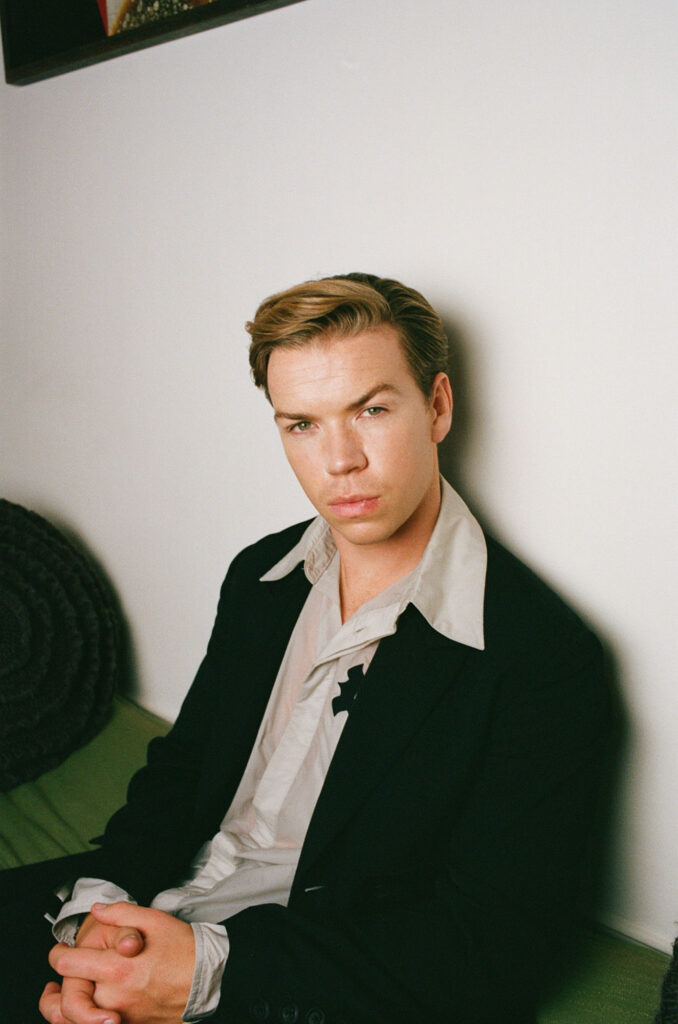
Blazer: Yohji Yamamoto Trousers: Forme D’expression Shoes: Guidi from layerslondon.com (@
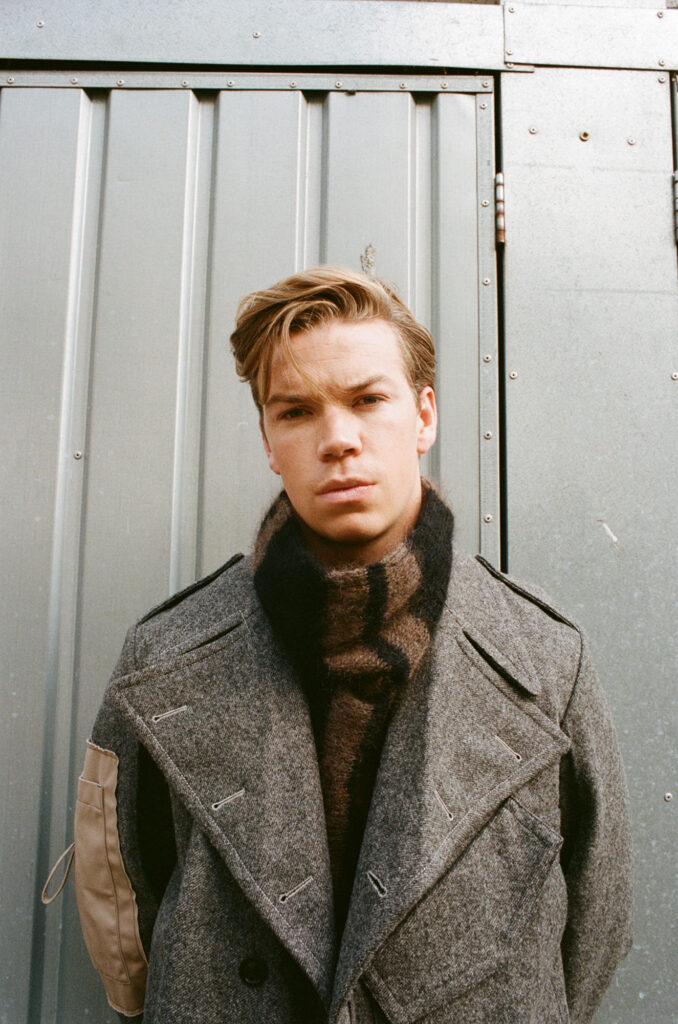
Will Poulter, the prominent English actor, gained recognition at a young age following his performance in Son of Rambow. Poulter somewhat guiltily credits the beginning of his acting career to simple luck, and even after huge success in the industry, he is still as humble as if he is waiting for that magic luck to run out. Poulter has graced screens in the U.K. and Hollywood alike in a variety of roles from a spoiled brat turned redeemable character in The Chronicles of Narnia, and awkward, a happy-go-lucky teenager in We’re the Millers, to confident video game programmer in Black Mirror: Bandersnatch, and terribly repugnant police officer in Detroit. Poulter’s love for acting stems from a sense of escapism along with a deep sense of purpose. Not all of his roles, however, offer a sense of escapism, especially Detroit, and most recently Dopesick, as these productions depict a tragic reality. Although these roles are more emotionally draining, his sense of purpose and passion for social change amplifies. Poulter plays Billy Cutler, a Purdue Pharma sales representative in Hulu’s new mini-series Dopesick, which brilliantly traces America’s opioid crisis dealt from Purdue’s fatal OxyContin-filled hands into the mouths of vulnerable populations. Poulter, often praised for his articulation and tact, thoughtfully tells us about his emotional state at the beginning of his career to now as he’s become well-known, his passion for social change, and his experience working on Dopesick.
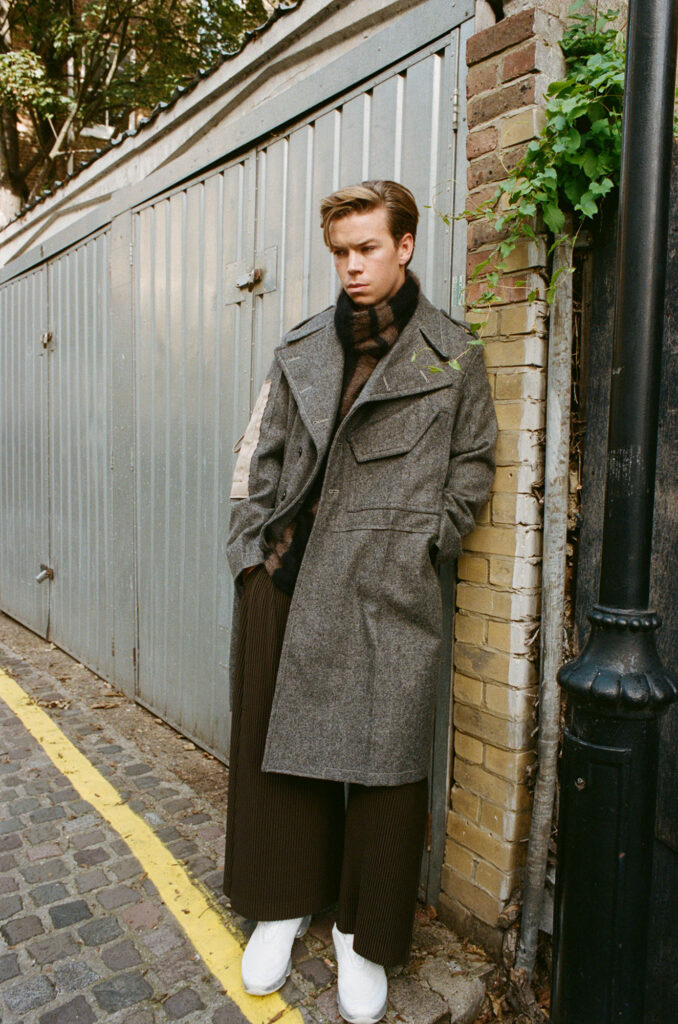
Coat: Maison Margiela from layerslondon.com (@
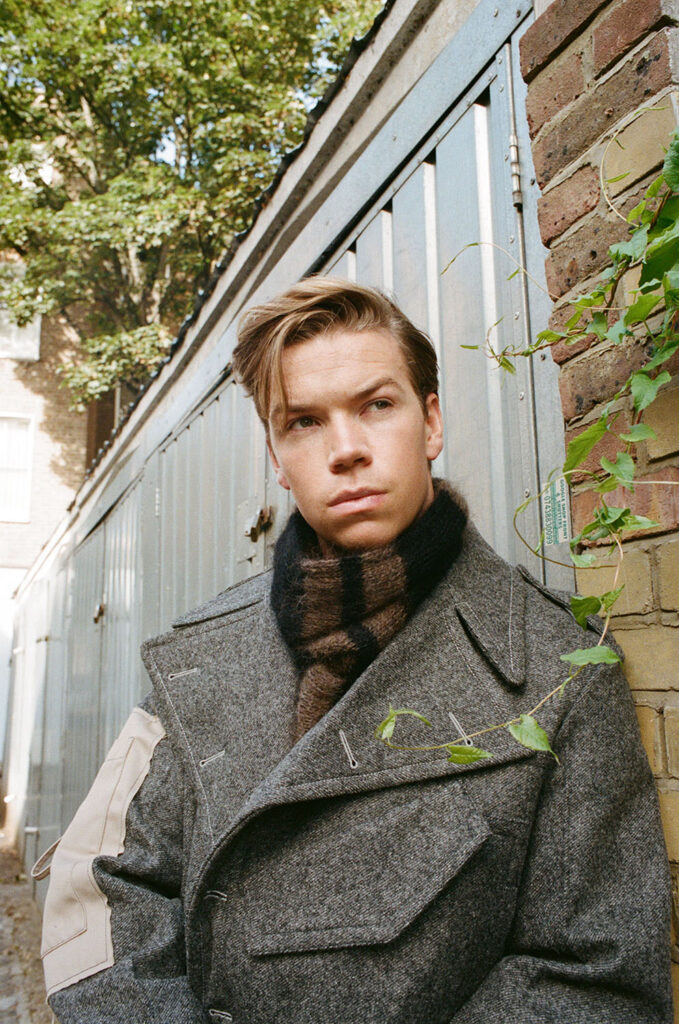
How would you describe the first emotions you can recall when you started to act in drama class when you were younger?
It was such a release from all the stress and anxiety I felt being in most other spaces. Whenever I was acting, I felt a pure sense of happiness. At the risk of sounding cheesy, any opportunity to perform was equal parts escapism and the only thing that really filled me with a sense of purpose.
You credit Laura Lawson, your drama teacher and School of Comedy creator, for much of your career. Is there any specific piece of advice she has given you that has really affected you?
I do, and for good reason. She instilled so much confidence in me where I didn’t really have any. I can’t say there was a singular piece of advice or anything specific that she said. Laura’s impact was characterised by how she would throw me in the deep end with the belief that I could swim even if I didn’t think I could! I needed that- someone to push me beyond my perceived limits. She was encouraging without mollycoddling me. It really prepared me well for later experiences in the industry.
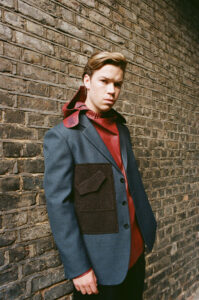
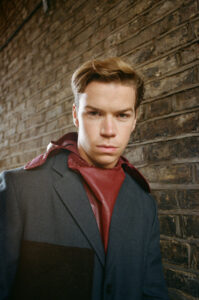
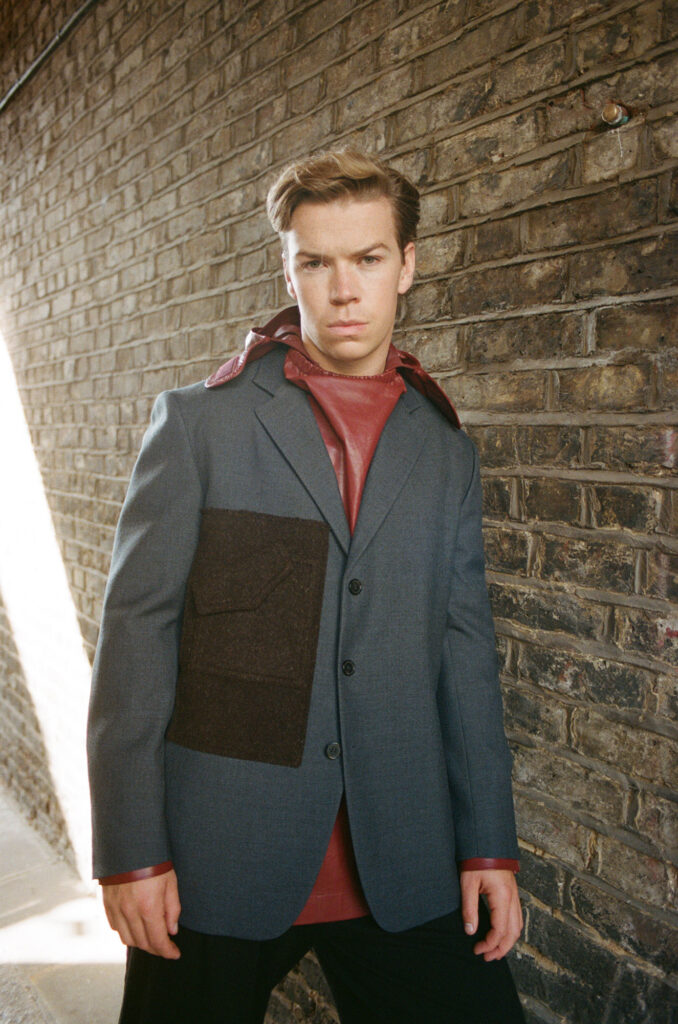
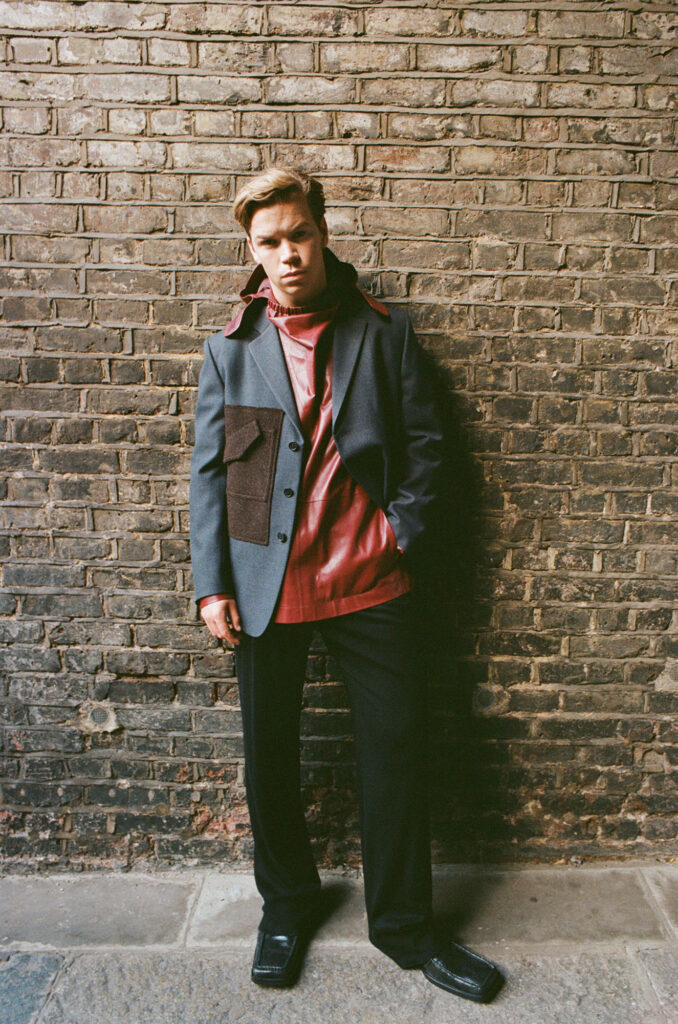
Blazer: Maison Margiela from layerslondon.com (@
In watching several interviews you’ve done, the comment section is overwhelmingly positive with many noting how you seem so kind, articulate, and thoughtful. I know you’ve talked about the negative effects of social media on mental health, but do you feel that these positive comments affect how you view yourself or have you gotten to a place where your self-perception isn’t impacted by anything external?
I’m so grateful for the support I receive from anyone who watches my work. It is of course meaningful, and I don’t take that support for granted. At the same time, just as you can develop a negative opinion and put your mental health at risk by reading negative comments, if you put too much stock in the opinions of people online that you don’t know, I believe you’re also at risk of developing an inflated sense of self. I try to have my actions and my words in real life (that is to say ‘offline’) be my focus. I can’t control others’ opinions; I can only hold myself to a standard over my work and how I conduct myself. I try to stay out of the comment section if I’m honest. It’s hard and you see hurtful things all the time, but so many internet platforms are set up in such a way that people are tempted to come up with the funniest, harshest or most contradictory statement they can all in pursuit of likes, shares, retweets, etc. That often comes at the expense of another person’s feelings. Seeing strangers tear each other down in order to win the popularity vote from other strangers is such a bizarre concept to me. It’s best I don’t participate in any capacity if I can help it.
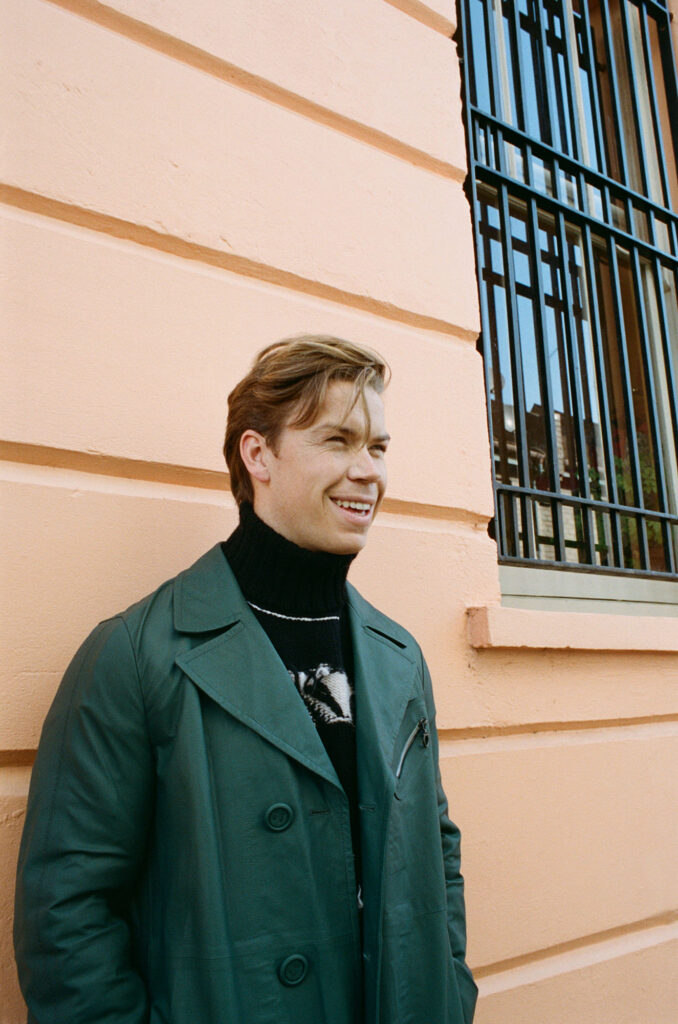
Leather coat: Salvatore Ferragamo Knit sweater: MM6 Maison Margiela
Trousers: Archivio J. M. Ribot from layerslondon.com (@
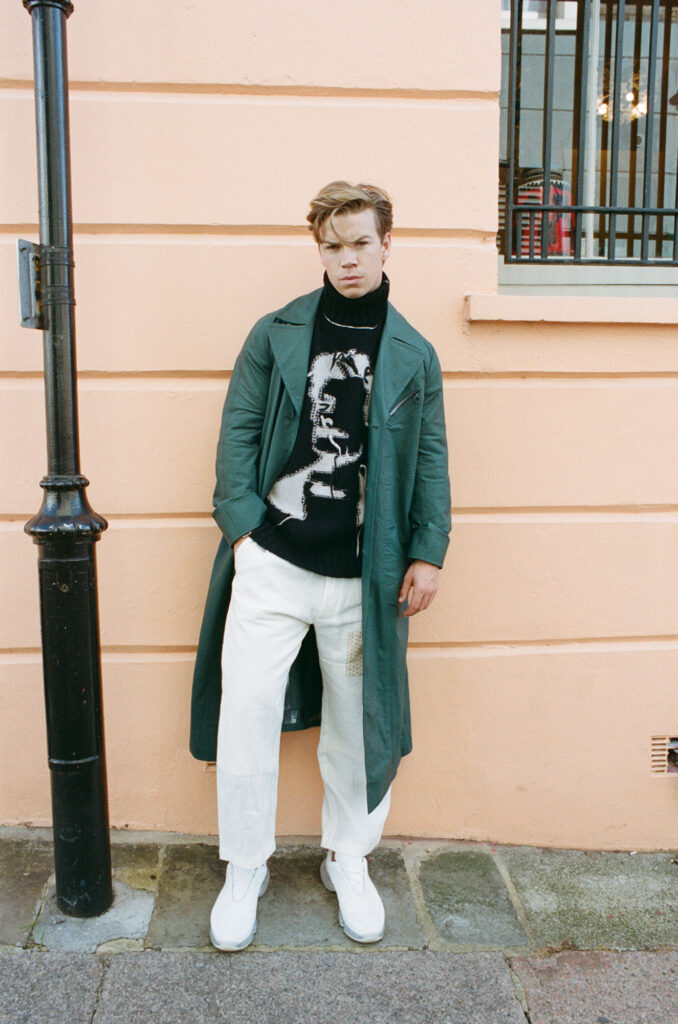
Other than acting, what do you feel most passionate about?
I suppose social injustice. I appreciate that’s a broad statement. However, I’m not sure which of the social issues I’m engaged with, I’m most passionate about. I do think one of the most impactful ways we can look to affect social change is by improving our education model. Two organizations I work with that are doing this are The Black Curriculum and Antibullyingpro in association with The Diana Award. Both of these enterprises believe in empowering young people with the knowledge and empathy for other people’s experiences in order to shape their surroundings for the better. It’s the reason I’m especially passionate about their work and they make me feel hopeful for the future.
You recently played Anthony, Andrew, and Abraham in The Dark Pictures Anthology: Little Hope, an interactive video game that is somewhat comparable to Black Mirror: Bandersnatch in the player’s ability to change the storyline with their choices. Did your experience working on Bandersnatch affect your decision to move into video games?
Haha, to be honest, I hadn’t really thought about it in that way. Both projects certainly made me appreciate how much work goes into making a video game and how talented game developers are. The short answer is no, though. I would have been more than happy to do either, independently of each other. I feel very lucky to have had those experiences.
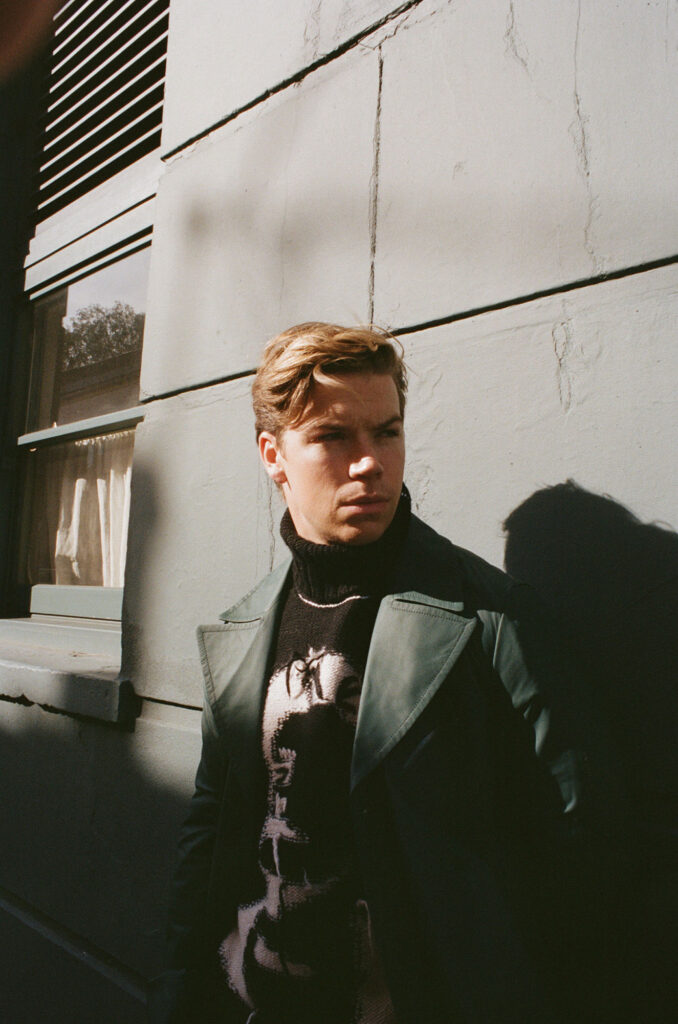
I would like to congratulate you on Dopesick, it is really a fantastic series and it’s one of my favorite roles of yours! The series educates about the opioid crisis of the United States and you play Billy Cutler, a member of the OxyContin sales force, who is controlled by monetary incentives. What was the education process like as you prepared for this role?
Thank you. It was really fascinating and honestly, very disturbing. I knew vaguely about the opioid crisis, but I wasn’t aware of just how devastating the effect of opioids continues to be. In 2020, when I first read the script, 90,000 deaths were attributed to opioids. It accounts for over 70% of deaths by overdose. It’s caused massive devastation to communities across America and to learn that one company that was micromanaged by a single family, all in pursuit of financial gain – it’s horrifying.
Most of your family is in the medical field, did their possible knowledge about the crisis despite being outside of the United States, help in terms of preparation at all?
To be honest, not really. Because the prescription rate of opioids is so unique to America, and the manner in which OxyContin was marketed by Purdue is unlike anything anyone has ever seen before. It’s a shocking surprise to everyone, especially when you consider just how many lies they told in the process and the lengths they went to fabricating data or funding scientifically flawed studies to make the drug appear less addictive than it is. All the while, they demonized ‘abusers’ while they were the abusers in this story. Addicts were and are victims of a drug that should never have been on the market.
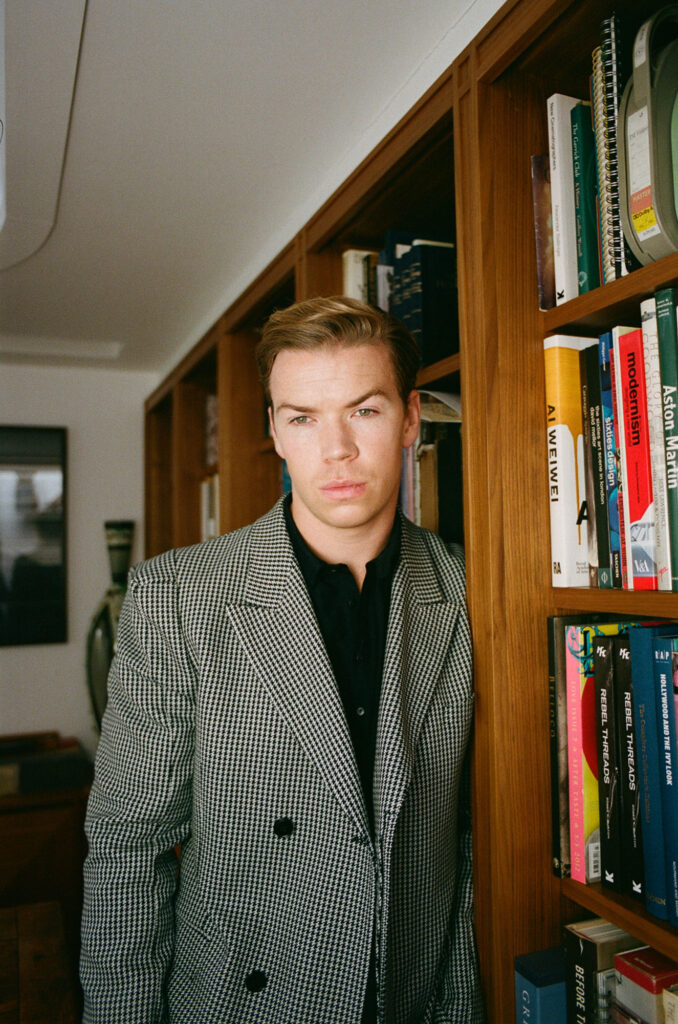
Blazer: Martine Rose Trousers: Maison Margiela Shirt: Archivio J. M. Ribot Bracelet: Robert Wellington from layerslondon.com (@
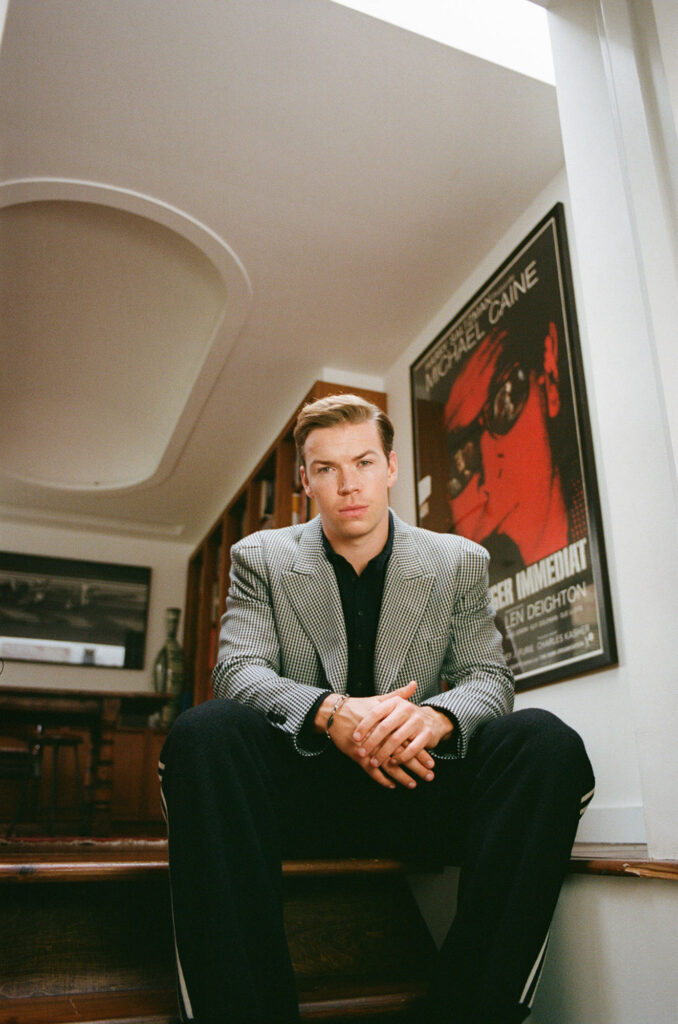
After you played a horribly racist cop in Detroit, you’ve said that you felt like you were really set on a path to look for projects that had the ability to affect social change. You also use your social media platforms for activist causes relative to racism in sports, domestic abuse, hate crimes, and bullying among many other topics. Dopesick seems like a series that should be shown in medical or business ethics classes in universities. What action do you hope comes as a result of the series?
That would be a wonderful outcome. I didn’t think about that, but yes, absolutely. I hope it also encourages people to be self-protective. The drug is still being prescribed at an alarming rate and I hope this show goes some way to warn people about its dangers. Additionally, I hope this corrects the narrative around who is to blame over the opioid crisis, and that in turn, people show more empathy towards the victims of opioid abuse disorder and those who suffer from the disease that is addiction, more generally. In my opinion, addicts were horribly vilified by Purdue and the Sackler family. On the other hand, both the company and the family seem to have gotten away with not being held fully accountable.
There are a lot of close-up shots of your face in the series which says more than dialogue could have. How would you describe Billy’s internal monologue in much of the series?
I think in Billy you’re watching a young person who’s wrestling with the unethical reality of his situation which is that at a certain point, he’s knowingly contributing to a culture of deception and fraud. He engages in coercion and bribery and ultimately lies to climb the ranks in the company. He has enough of a moral grounding to know that what he is a part of is fundamentally wrong, but he’s also too tempted by the money and success that comes with being a valued employee of Purdue’s.
As much as the series is intensely interesting, it’s also quite heavy and devastating to think about all who have been affected by the epidemic. For projects like this, do you feel drained emotionally since there’s really no escape from something so firmly based in reality?
To be completely frank, yes. I really do. But as an actor, you’re reminded that whatever you’re pretending to do will pale in comparison to the reality of living that situation. I’ll also say that I haven’t been on a set where so much care and attention was given to the wellbeing of the cast and crew before. In my experience, there was an exceptional level of care and attention paid towards people’s mental health throughout the process. I’m very grateful for that.
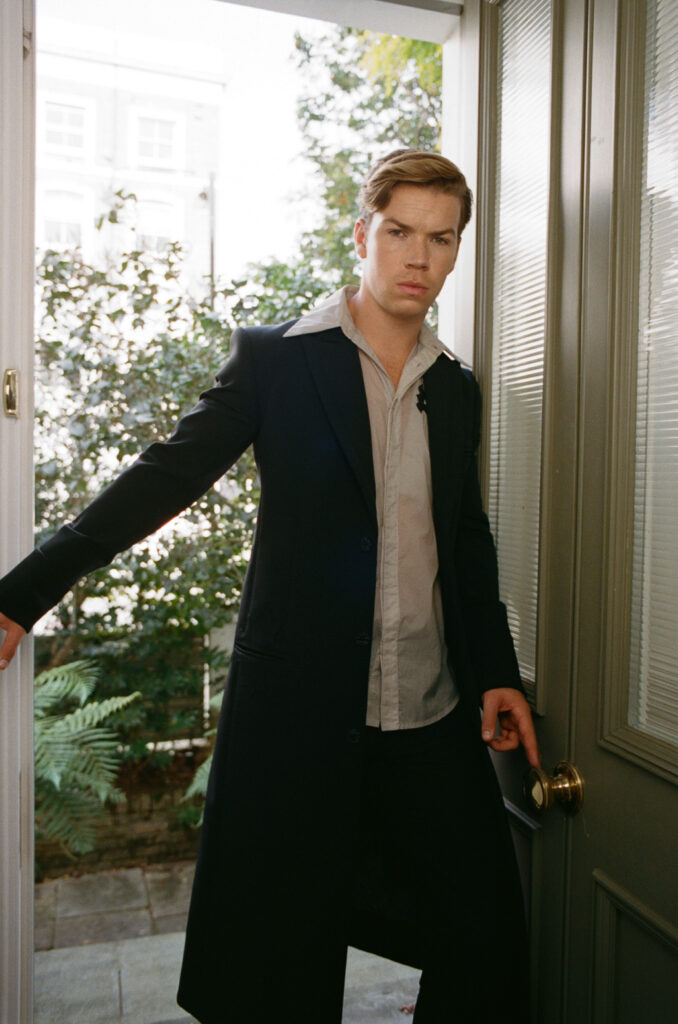
Blazer: Yohji Yamamoto Trousers: Forme D’expression Shoes: Guidi from layerslondon.com (@
Just to add a bit of a light-hearted closing to this interview, you are a big fan of dance films and sneakers- if you could be in a dance film, what’s your signature move and what shoes are you wearing?
Hahaha! That’s hilarious. I’m wearing Jordan 6 infrareds (my favorite Jordan and good ankle support!) and I’m probably just two-stepping because that’s all I can do!
What can we look forward to next from you?
I’m in an upcoming TV show called Why Didn’t They Ask Evans? and a musical film called The Score. Thanks for having me!
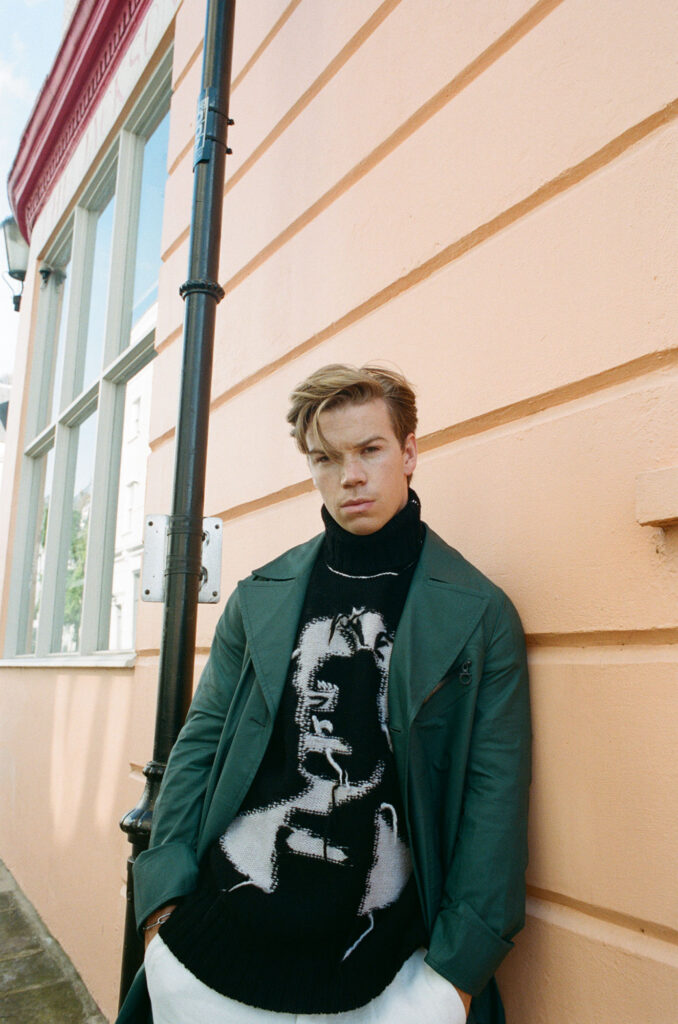
Photography
Interview
Casting & Editor-in-Chief
Stylist
Grooming
Nicola Harrowell @ Premier Hair And Makeup
Fashion Assistant
Web Layout Art Direction
Thank you,
Tapestry London,
The Mathieson’s Talbot Tower & HULU
View DOPESICK trailer here:
